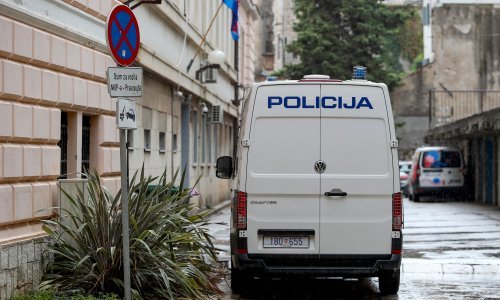Croatia is fulfilling its commitments and requirements from its accession negotiations with the European Union in all policy areas and will be ready for EU membership on 1 July 2013, the European Commission says in its final monitoring report, released on Tuesday. EU Enlargement Commissioner Stefan Fuele presented the report in Zagreb.
"Croatia has completed the ten priority actions identified in the Commission's Comprehensive Monitoring Report of October 2012. The Commission is therefore confident that Croatia will be ready for membership on 1 July 2013," reads the report, paving the way for the completion of the ratification of the Treaty of Accession in the remaining EU members.
"Croatia is generally meeting the commitments and requirements arising from the accession negotiations, in all chapters. Croatia has demonstrated its ability to fulfil all other commitments in good time before accession. Where required, clear work plans are available or about to be finalised for completing the remaining work, including in the fight against corruption, in the months ahead."
It was the third and final monitoring report that the Commission has issued since Croatia and the EU signed the Treaty of Accession in Brussels on December 9, 2011. The first report was made public on April 24, 2012, covering the three most important chapters. The second, comprehensive report was released on October 10, 2012, covering all chapters, while the third and final report focused again on the three most important chapters of EU legislation - Competition Policy, Judiciary and Fundamental Rights, and Justice, Freedom and Security.
The second comprehensive report was about Croatia's efforts to address the following ten tasks: signing a privatisation contract for the Brodosplit shipyard and taking the necessary actions to find a viable solution for the 3. Maj and Brodotrogir shipyards in order to complete the restructuring of the shipbuilding industry; implementing the short-term measures elaborated in September 2012 for increasing the efficiency of the judiciary and reducing the court backlog; adopting the new enforcement legislation in order to ensure the execution of court decisions and reduce the backlog of enforcement cases; establishing the Conflict of Interest Commission so that it starts working; adopting the new law on access to information in order to strengthen the legal and administrative framework in the area of access to information; completing the adoption of related by-laws to ensure the implementation of the police law; completing the construction of border crossing points at the Neum corridor; achieving the established recruitment target for border police for 2012; finalising and adopting the migration strategy with clearly defined measures for the integration of the most vulnerable groups of migrants; and increasing the capacity to translate and revise the acquis so that this task can be completed in time for accession.
According to the Commission's assessment, nine of those ten tasks have been finalised, and the remaining one, concerning the construction of the the border crossing facilities at Klek and Zatoni Doli at the corridor through Neum, Bosnia and Herzegovina, will be completed soon.
"Croatia's forthcoming accession is the result of 10 years of a rigorous process, which started with its application for membership in 2003. EU membership is an additional incentive to continue reforms in Croatia. Building on the achievements to-date, Croatia is expected to continue developing its track record in the field of the rule of law, notably in the fight against corruption. EU membership also offers many and substantial opportunities for Croatia and the EU. These opportunities now need to be used, so that Croatia's participation in the EU will be a success – to the benefit of Croatia itself, of the Western Balkans region, and of the EU as a whole," the report concludes.
The 15-page report reads that "it is welcome that the government continues to ensure the implementation of the constitutional provisions on the use of the Cyrillic script in the city of Vukovar, where Croatians of Serb ethnicity account for 38.5% of the population."
The Commission also "welcomes the signing by Croatia and Slovenia of a Memorandum of Understanding, in March 2013, defining a mutually acceptable solution to the issue of the transferred foreign currency savings of the Ljubljanska banka in Croatia."

































